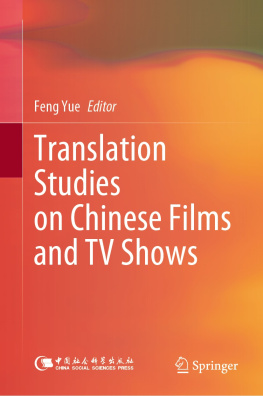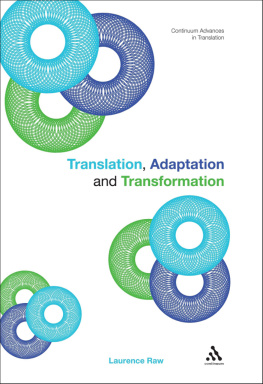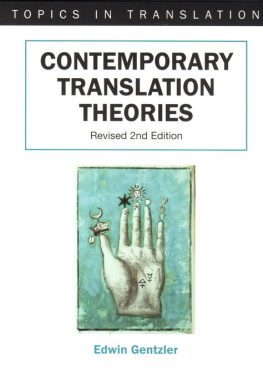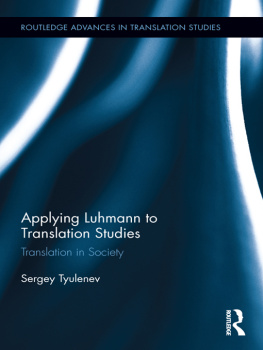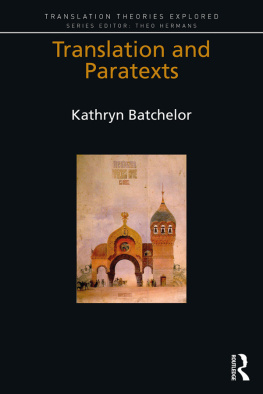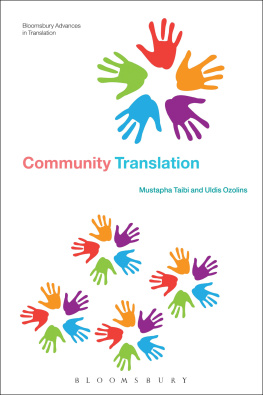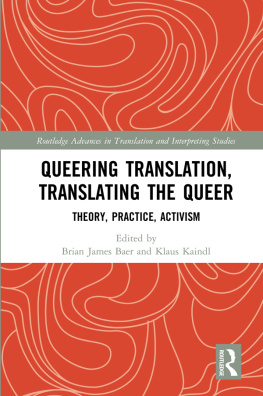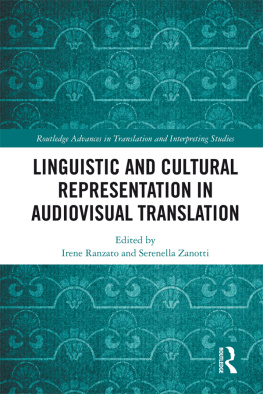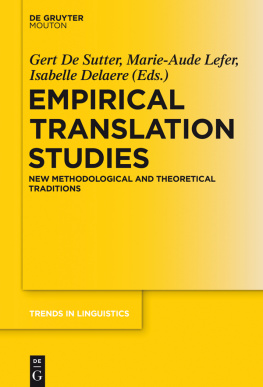Corpus Methodologies Explained
This book introduces the latest advances in Corpus-Based Translation Studies (CBTS), a thriving subfield of Translation Studies which forms an important part of both translator training and empirical translation research. Largely empirical and exploratory, a distinctive feature of CBTS is the development and exploration of quantitative linguistic data in search of useful patterns of variation and change in translation. With the introduction of textual statistics to Translation Studies, CBTS has geared towards a new research direction that is more systematic in the identification of translation patterns; and more explanatory of any linguistic variations identified in translations. The book traces the advances from the advent of language corpora in translation studies to the new textual dimensions and the shift towards a probability-variation model. Such advances in CBTS have enabled in-depth analyses of translation by establishing useful links between a translation and the social and cultural context in which the translation is produced, circulated and consumed.
Meng Ji is Associate Professor/Reader at the Department of Chinese Studies at the University of Sydney.
Lidun Hareide is Assistant Professor at Mreforsking AS, Volda, Norway.
Defeng Li is Professor of Translational Studies at the University of Macau, China.
Michael Oakes is Reader in Computational Linguistics at the University of Wolverhampton, UK.
Routledge-WIAS Interdisciplinary Studies
Edited by Hideaki Miyajima and Shinko Taniguchi, Waseda University, Japan
1. Corporate Crime in China
History and contemporary debates
Zhenjie Zhou
2. Why Policy Representation Matters
The consequences of ideological proximity between citizens and their governments
Willy Jou, Luigi Curini and Vincenzo Memoli
3. Electoral Survey Methodology
Insight from Japan on using computer assisted personal interviews
Edited by Masaru Kohno and Yoshitaka Nishizawa
4. Corpus Methodologies Explained
An empirical approach to translation studies
Meng Ji, Lidun Hareide, Defeng Li and Michael Oakes
5. Clans and Religion in Ancient Japan
The mythology of Mt. Miwa
Masanobu Suzuki
Corpus Methodologies Explained
An empirical approach to translation studies
Meng Ji, Lidun Hareide, Defeng Li and Michael Oakes

First published 2017
by Routledge
2 Park Square, Milton Park, Abingdon, Oxon OX14 4RN
and by Routledge
711 Third Avenue, New York, NY 10017
Routledge is an imprint of the Taylor & Francis Group, an informa business
2017 Meng Ji, Lidun Hareide, Defeng Li and Michael Oakes
The right of the editor to be identified as the author of the editorial material, and of the authors for their individual chapters, has been asserted in accordance with sections 77 and 78 of the Copyright, Designs and Patents Act 1988.
All rights reserved. No part of this book may be reprinted or reproduced or utilised in any form or by any electronic, mechanical, or other means, now known or hereafter invented, including photocopying and recording, or in any information storage or retrieval system, without permission in writing from the publishers.
Trademark notice: Product or corporate names may be trademarks or registered trademarks, and are used only for identification and explanation without intent to infringe.
British Library Cataloguing in Publication Data
A catalogue record for this book is available from the British Library
Library of Congress Cataloguing in Publication Data
A catalog record for this book has been requested
ISBN: 978-0-415-71699-4 (hbk)
ISBN: 978-1-315-69412-2 (ebk)
Typeset in Galliard
by Out of House Publishing
Contents
Michael P. Oakes
Meng Ji
Defeng Li
Lidun Hareide
Lidun Hareide
Empirical translation studies represents a rapidly growing field of cross-lingual and cross-cultural studies. An important feature of recent development in empirical translation studies is the use of statistical research methods in the exploration of translational features at linguistic and textual levels. Recurrent patterns identified and extracted from quantitative translations bring valuable and much-needed insights into effective translation strategies and techniques to inform the teaching of practical translation, the development of translation theories and the design of new translation technologies and software to support cross-cultural communication. This book represents the joint effort of advancing empirical translation studies among four translation scholars from Australia, Norway, China and the UK.
The conceptualisation of this project was discussed and finalised among the co-authors when the first author of the book, Meng Ji, was affiliated with the Waseda Institute of Advanced Studies (WIAS), Waseda University, Tokyo, in 2012. As the first translation scholar to be awarded the prestigious WIAS Research Fellowship, she benefited greatly from the world-class research environment provided by WIAS, which was multi-disciplinary, stimulating and truly rewarding. As the first title of translation studies in the Routledge-WIAS Interdisciplinary Studies series, the publication of the book on the tenth anniversary of the foundation of WIAS reflects the tradition and aspiration of the world-leading research institute, i.e. to pursue research excellence to advance better cross-cultural communication and understanding.
An empirical approach to translation studies
by Meng Ji, Lidun Hareide, Defeng Li and Michael Oakes
Amidst the growing body of empirical translation studies and corpus translation studies in particular (CTS), the current volume represents the latest research in key areas of CTS such as machine translation ().
The distinction between these three main research paradigms within the current CTS, which is evolving rapidly, is largely based on the purposes and aims of the use of empirical evidence in the study of corpora. Throughout the book, the frequency-based analysis of language corpora, monolingual or multilingual, plays an instrumental role in the corpus analysis of translation. In corpus-driven translation research as exemplified by (on genre studies), corpus analysis tends to focus on the statistical modeling of linguistic and textual patterns which lead to the development of new computational language models, conceptual dimensions and analytical instruments in translation studies.
statistical procedures which allow readers to obtain an in-depth understanding of machine translation systems from Google Translate to popular computer-assisted translation (CAT) language resources like translation memories.
presents a quantitative analysis of contrastive distributional patterns of part-of-speech categories in monolingual English and Chinese corpora, and corpora which contain Chinese translations of English source texts. The corpus study adopts an essentially corpus-driven approach to the analysis of the quantitative data extracted from large-scale language corpora. The statistical analysis constructs three distinctive genre classification models for English, Chinese and translational Chinese as represented by the three large-scale corpora under study. The analysis shows that English written genres have a clear focus on techniques involved in the delivery of textual information. By contrast, the genre system of original Chinese gives more emphasis to language style rather than the delivery of actual textual information. The focus on the quality and stylistic features of the language implies that the prioritization of the aesthetic value of writing exists widely in the modern Chinese genre system, which is a long-standing tradition in the Chinese language and cultural system.


